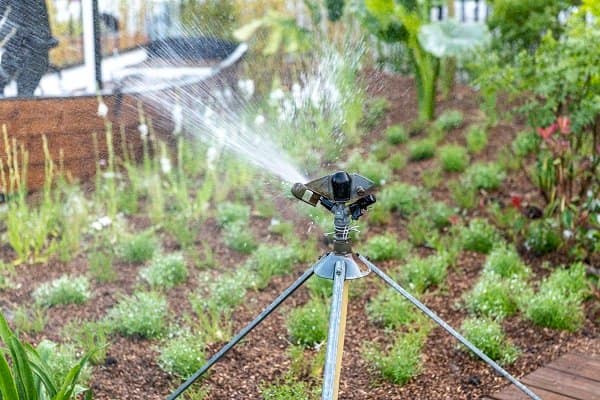In the UK alone, around 4500km2 of land is occupied by the garden areas. Still, there are the issues of global warming and pollution due to the inefficient usage of this land. Look around at your garden, is it green enough to support the ecosystem or is it more of a damaging one?
If your garden is not sustainable and eco-friendly, the carbon prints and greenhouse gas emissions will continue contaminating the environment. In this article, we have added green garden ideas that will help you grow a lush garden for the well-being of the ecosystem and create a soothing place for you.
Tips to grow a green garden
Here are the tips that will help you to turn your ordinary backyard into a flourishing and greener garden. Let’s look at them to take your gardening game a step further.
1. Waste management
Start your green garden with the appropriate waste management. There are separate ways to manage different kinds of waste generated in the garden. Plant wastes like fruit and vegetable peels, leaves, and small branches are the compostable ones. You can make your fertilizers by composting, thus saving you money and lessening the environmental stress caused by waste.
You can also find something useful out of the non-compostable items like a pile of long branches or tree logs to create wild-life-friendly habitats in your garden to balance the ecosystem and save the endangered species in your vicinity from extinction.
2. Use wise watering strategies
Clean water is an endangered source that requires careful and wise usage to keep our natural water resources functional for longer. Moreover, both overflooding and underwatering are poisonous to your home lawn. Hence, it would be best to use Water-wise strategies to water your garden.
Go for planting native plants that do not require additional water intake to adapt to the soil in your garden. Use a rainwater irrigation system or drip irrigation system that helps to reduce the water wastage.
3. Go green
Go green is not only a motto, it is the need of the time to save Mother Nature from the harms of human behaviors. You can mold your garden as an eco-friendly one by cutting down on the items that pollute the environment in any way. start by switching the plastic pots of your plant with the ceramic ones or preferably substitute them with the empty tins or metal containers from your kitchen.
Moreover, you need to be careful about the plastic usage in your garden. Get your seeds or compost in paper bags, use newspaper pots for getting new plants from the nurseries, or get durable metal equipment for your garden instead of plastic ones. Careful planning and a bit of extra effort will help you to incorporate eco-friendly practices into your gardening routine.
4. Ditch the plastic grass
For a green garden, you need to let go of artificial grass. It deteriorates the soil quality by depleting its nutrients, especially the air and water retention properties, and keeping away the natural habitats of the garden like pollinators or garden insects that helps to maintain the integrity of the soil. Moreover, natural grass filters the contaminants by trapping the greenhouse gases, thus reducing its impact on the environment.
The artificial grass is made from plastic which is a big no-no. You don’t want to get piles of green plastic in your backyard that is good for nothing as you cannot expect the artificial plastic-made grass to serve the same health and environmental benefits as the real grass does.
5. Specify some areas for bugs
You need to balance the ecosystem in your garden by making it wild-life friendly by creating safe habitats and food resources. The most important of them are the birds that feed on insects for their wholesome food intake.
Insects like bugs prefer a wild habitat for their living and if you want them to stay in your garden, leave some room in the garden to grow wild. Try planting wild plants like “plug plants” to make them feel at home.
6. Say no to chemicals
The key aspect of being an Earth Saver is to keep your garden game real. Say no to artificials in your garden whether it is fake grass or chemical inorganic fertilizers, herbicides, or weed controllers. These chemicals may get you a flourished garden but in the long aspects, your food and atmosphere become flooded with toxic heavy metals causing health concerns.
Ditch all of them and opt for eco-friendly options like composting your kitchen or garden wastes, making your weed killers, or pesticide sprays from potential plants grown by you in your garden.
Final words
In conclusion, chemicals are the biggest enemies of the green garden. Adoption of eco-friendly practices and creating a wildlife-friendly habitat will get you a balanced ecosystem and a lush green garden area. If you need professional assistance with your garden area, visit https://www.gardensofjasmine.co.uk/ to hire your gardening experts.






Leave a Comment